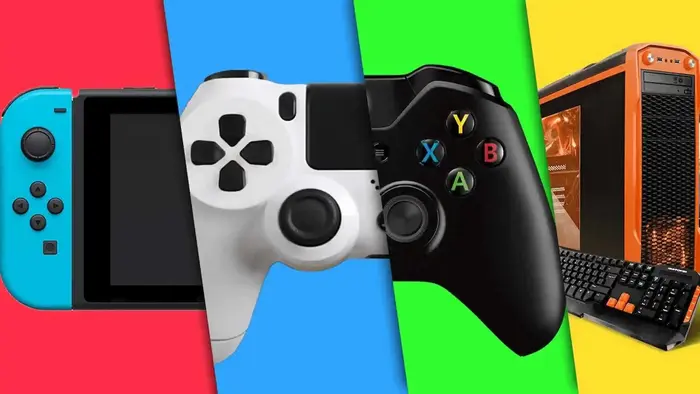Why do companies choose not to make cross-platform gaming available?
By Alex@PC╺
- PS4
- PS5
- XBox One
- Series X
- PC
Cross-platform gaming has become a standard in the gaming industry, across the genres. Players can enjoy playing titles on multiple devices, picking up where they left off and enjoying whenever they can and want, without being limited as they may have before.

Cross-platform Across all Gaming Niches
The technology has had a profound impact on the sector. Every gaming niche has seen the implementation of cross-platform technologies. Whether it be on a video game console like one of the NextGen options that are being used today on mobile devices like smartphones and tablets, or even PCs and laptops, gaming has become more accessible and convenient than ever.
Web-based games have perhaps enjoyed a huge amount of success because of this. Players can engage in a game on their laptop or home computer and now switch it to a mobile device. This has led to a boom in certain game niches, with the iGaming sector among those to enjoy growing expansion and easy accessibility via smart devices.
Gamers can play casino games on any device they choose through cross-platform tech. This can be handy if they like to have convenience when playing and have greater control over their gaming sessions.
For example, operators like Pulsz offer promo codes that provide additional coins for their sweepstakes casino as seen here: https://www.actionnetwork.com/sweepstakes-casinos/pulsz, but once registered, the games can be enjoyed anywhere, be it a smartphone while waiting in line somewhere or a PC while relaxing at home.
With cross-platform it’s easy to switch between devices using the casino and continue to receive the same gaming experiences without interrupting the leaderboard progress made on either device.
However, while the technology has proven to give players many benefits that can encourage prolonged sessions or even increase the frequency in which they are enjoyed, not all game studios have decided to make their titles cross-platform compatible.
Why have companies not made titles cross-platform compatible?
Given the benefits and how they could potentially attract new players, it does seem odd that not all game companies implement cross-platform compatibility within the titles that they release. Still, there are a multitude of reasons why this might be the case.
Although technology has come on leaps and bounds, technical issues and challenges can still be encountered that make it difficult for developers to make their games operate efficiently across multiple verticals.
Developing and maintaining cross-platform compatibility requires significant resources, as different platforms (PC, Xbox, PlayStation, etc.) have unique hardware, software, and network architectures. Ensuring consistent performance and security across these systems can be complex and costly.
Companies may have no interest in making titles cross-compatible because of the impact it may have on their bottom line. Of course, a game studio is looking to make a title as profitable as possible. While making it available to players across multiple devices could lead to an increase in player numbers, keeping the title more exclusive or platform-specific can have the same impact on sales.
Players may feel that they are getting something for themselves, or even potentially being rewarded for their loyalty by sticking to a particular game console. Indeed, the big corporations like Sony, Microsoft, and Nintendo have all done it in the past, restricting cross-play to keep players within their ecosystem, boosting platform loyalty and revenue from subscriptions.
In addition, keeping a title exclusive to one console or ecosystem can help the brand to have a competitive advantage over their rivals, which may give them an edge in a highly competitive market.
Simultaneously, some game studios and platforms will often operate with monetization differences. Platforms often have distinct in-game purchase systems or revenue-sharing models. Aligning these for cross-platform play can complicate profit distribution, especially for microtransactions or downloadable content (DLC).
With revenue sharing potentially difficult to sort and reach agreements over with multiple platforms, some may just look to keep it as simple as possible by opting for one method.
Some may use the decision to not use cross-platform technology as a means of protecting a game’s legacy. By allowing other gamers to enjoy the title from different platforms, it may create a negative experience for those that have shown loyalty towards it in the past. This could damage its reputation, potentially making it a release that no longer performs.

Should all games be cross-platform in today’s market?
With cross-platform gaming becoming increasingly popular (e.g., Fortnite, Call of Duty), there is an argument to have all future titles to be released with cross-platform compatibility. Gamers want the best experiences when they play, which can include social aspects such as playing with friends who have a preference to other devices.
However, from an economic perspective, it perhaps makes sense why so many companies don’t implement it as much as others. They are prioritizing their strategic or financial goals over universal accessibility, which at the end of the day, is perhaps what it’s all about.
